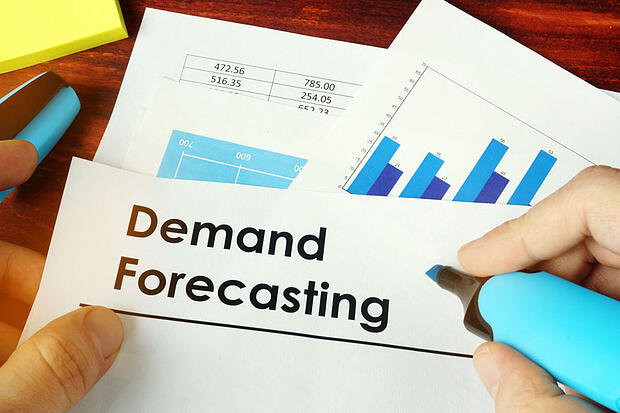In the business world, the concepts of supply and demand still drive much of your activity and planning. A proper business strategy requires proper knowledge of the demand for your products or services both now and in the future. Demand Forecasting is critical for your business and its success.
Various Methods of Demand Forecasting
Predicting demand is not a one size fits all solution and several metrics can be used to help forecast future demand for goods or services. Note that many companies make use of several or all of the below options at various points and no single method will create a complete picture.
Surveying Buyers:
when trying to predict future demand and therefore customer behavior going straight to the customers can prove useful. The downside of customer surveys is that customers can change their minds, encounter externalities that may alter buying needs, or simply overestimate future needs.
Salesforce Input:
your staff and sales personnel can provide useful information given their hands-on knowledge about sales and your company’s clients. This can be useful for learning about buying trends and general customer behavior and viewpoints. However, such data isn’t entirely scientific.
Ask The Pros:
The business world has its share of experts who have been around for many years, seen the many things that can happen, and have valuable experience both hands-on and through industry connections.
Review Your Market:
A broad and sweeping approach this type of forecasting relies on reviewing conditions in your particular market segment. A review of the total market considers broader trends, consumer behavior, and careful study of market conditions under controlled studies that still reflect real-life events. This type of data forecasting can tell you a lot however, it can be expensive and take a great deal of time to get the final results.
Leverage Past Data:
This particular type of forecasting uses past results and attempts to predict future demand based on past trends. There are several metrics of performance that are measured with adjustments made for various externalities. Past data analytics are quite useful and in more predictable or consistent markets can be quite accurate.
Statistics:
Statistical analysis are one of the most important parts of demand forecasting and are essential because it can remove bias and anecdotal evidence by focusing on hard data and numerical results. Trend projection and regression analysis are two of the most common and important formulas used in demand forecasting.
Final Thoughts
Calculating demand is no small thing it requires expert analysis and a careful review of several data sources to create a complete picture of the demand for your business’s customer base. However, you may lack the resources or time to conduct such a thorough analysis in addition you may not have the capacity to hire the proper staff for demand forecasting. By hiring a third-party company you gain access to experienced professionals who have the right tools and knowledge for the job. Data forecasting isn’t just for global corporations either such information is valuable for local and midsize businesses and can help them succeed and beat the competition.





